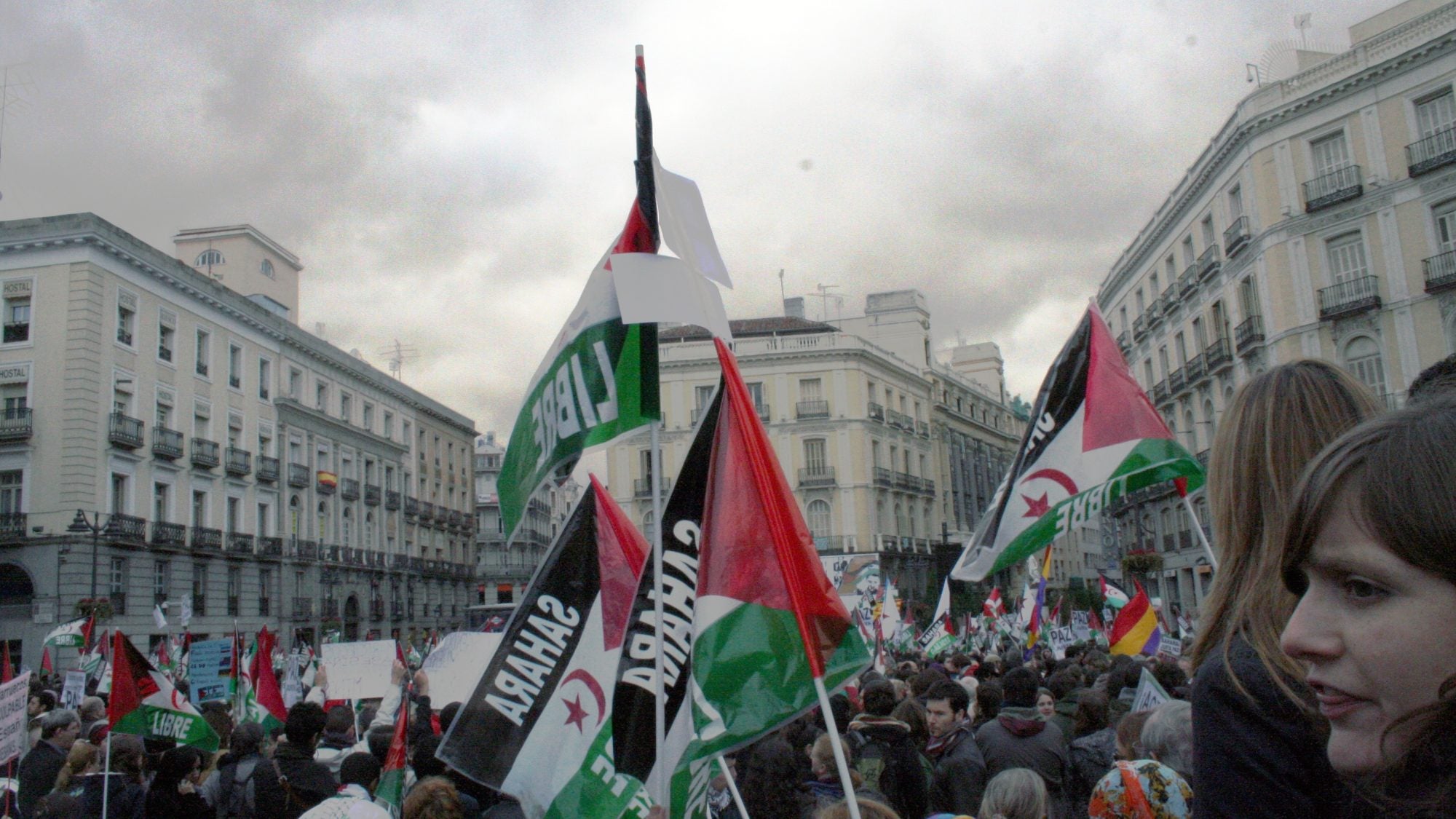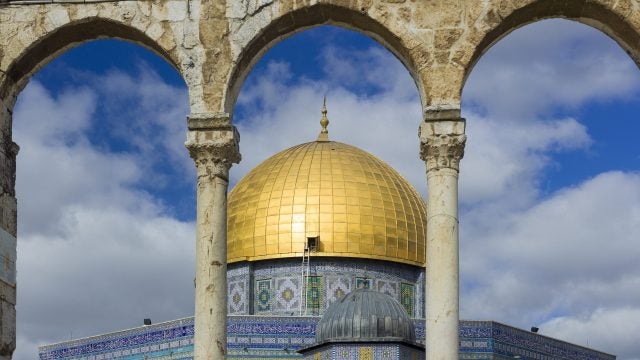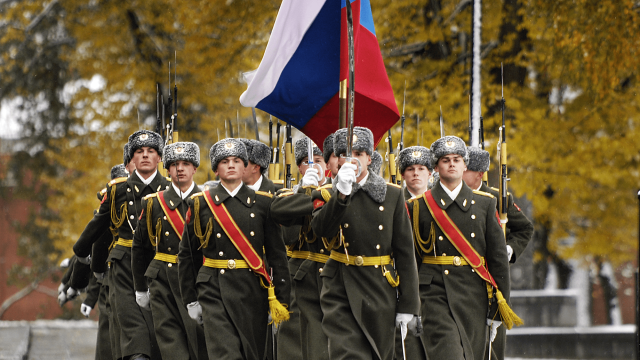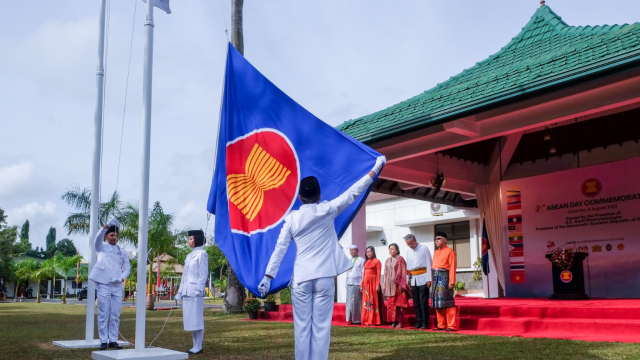
Title: The Rules-Based Order and the High Stakes of Western Sahara
The United Nations Mission in Western Sahara (MINURSO) was founded in 1991 to oversee the ceasefire of a sixteen-year war as well as the self-determination referendum on the future of the disputed colonial territory. In 2020, following years of Moroccan rejection of the referendum, the ceasefire was broken. After Trump recognized Moroccan sovereignty over Western Sahara in 2021, Morocco expanded its occupation of the territory. The failed decolonization of Western Sahara has foretold this erosion of a rules-based international order. However, the current situation in Western Sahara still presents an opportunity for the United States to support international law.
Introduction
The last few years have witnessed several developments that attest to the fragility of the rules-based international order: Russia’s occupation of Crimea and invasion of Ukraine; Israel’s occupation of Palestinian territory; and Venezuela’s attempts on Guayana Esequiba. The case of Western Sahara has long foreshadowed this crisis first through its drawn-out failure of decolonization. The United States has explicitly enabled the occupation of Western Sahara by the Moroccan government. Now, amidst several global crises, the United States should see Western Sahara as an opportunity to restore the international order in place since World War II (WWII).
The United Nations Involvement in Western Sahara
In 1975, war broke out between the Moroccan government and the independence movement of the indigenous people of Western Sahara–the Polisario Front–which had been organized in 1973 to eject Spanish colonial powers. The Moroccan government took its case to the International Court of Justice (ICJ), arguing that the territory was part of a historic “Greater Morocco,” which entitled Morocco to control Western Sahara and ignore the will of the territory’s inhabitants. The ICJ disagreed and issued an advisory opinion calling for self-determination for those who lived there. Despite this ruling, on the evening of the ICJ’s decision, the King of Morocco addressed the Moroccan people via TV and radio. He called for 350,000 volunteers to settle and colonize Western Sahara, an event called the “Green March.” A few weeks later, Spain signed the Madrid Accords and transferred control of Western Sahara to the Moroccan and Mauritanian governments, making no provisions for prescribed self-determination of the territory’s people.
A hot war between Morocco and the Polisario Front embroiled the territory for sixteen years, displacing most Sahrawis into refugee camps near Tindouf, Algeria. Then in 1991, the UN brokered a ceasefire and established the UN Mission for the Referendum in Western Sahara (MINURSO). MINURSO has overseen two basic missions: maintaining a ceasefire in the territory and running a referendum on the future of the territory. But since 2003, Morocco has refused to take part in any referendum that includes a Western Saharan independence option. Unfortunately, the ceasefire broke in 2020, rendering both primary elements of the mission failures. Today, the United Nations considers Western Sahara to be a non-self-governing territory, as it is often called “Africa’s last colony.”
The conflict has consistently revealed international legal failures to ensure self-determination and prevent the occupation of foreign territories. Even when all UNSC members backed UN plans–as in 2003 when supporting James Baker’s Peace Plan–no state has compelled the Moroccan government to abide by any democratic process that could result in independence for Western Sahara. Instead, with French and American support, Morocco has pursued territorial conquest and settler colonialism.
In late 2020, in its final weeks of governing, the Trump administration recognized Moroccan sovereignty over the territory. This recognition overturned decades of US policy and contradicted the territory’s UN status. The United States set a grave precedent for its foreign policy, akin to recognizing Russian sovereignty over Crimea. More broadly, the US decision points to a growing international toleration of territorial expansion. The Moroccan government has benefitted from a status quo defined by UN member states who are unwilling to check territorial expansion.
Erosion of the Rules-Based System
The UN Secretary General’s report in October 2023 details Morocco’s continued obstruction of UN activities, including its refusal to allow the Office of the United Nations High Commissioner for Human Rights to observe humanitarian conditions in Morocco for the eighth year running. The same report claims that the Polisario Front has begun limiting MINURSO activities as well, rendering the Mission even more impotent.
The relative success of the post-WWII rules-based order has enabled effective conflict management and advanced a norm against the conquest of territory. This success stems from prioritizing post-conflict negotiated and recognized borders, not pre-modern or pre-colonial claims. For example, the African Union’s founding charter explicitly includes the respect of colonial borders. And like AU member states, most UN member states have conflicting claims about where borders ought to be drawn. These disputes have not typically manifested in war, in part, because the UN has disincentivized war through diplomatic and economic sanctions and by providing a political arena for diplomatic resolution.
However, Morocco’s occupation of Western Sahara highlights a continuing trend of the erosion of post-WWII international norms. Addressing the UN the day after Russia invaded Ukraine, the Kenyan ambassador to the UN, Martin Kimani, articulated the danger of validating Russia’s territorial claims, “Had we chosen to pursue states on the basis of ethnic racial or religious homogeneity we would still be waging bloody wars these many decades later. Instead, we agreed that we would settle for the borders that we inherited, but we would still pursue continental political and economic and legal integration rather than form nations that looked ever backwards into history with a dangerous nostalgia.” Ignoring pleas from Kimani and others, Morocco follows Russia’s example of disobeying international norms against conquest and occupation. Western Sahara’s right to self-determination is essential to the functioning of the international system and especially its ability to manage the many conflicting historical claims that harken back to a more violent pre-WWII order.
US Inconsistency in Promoting Self-Determination
The United States led the post-war organization and drafting of the first founding documents of the UN. The United States also hosted the first UN meetings and has since served the key role of giving UN processes strong backing through sanctions and at times even military strength. For this reason, few questioned the US-led coalition’s forceful prevention of Iraq’s annexation of Kuwait in 1991 after the United States had garnered twelve of the UNSC’s fifteen members’ support. The coalition defended sovereignty, backing international norms and mitigating anarchy.
The international system is built on the principles of sovereignty, self-determination, and territorial integrity of the nation-state, all of which are enshrined at the beginning of the UN charter. Every Security Council member has drawn exceptions for themselves to these rules, eroding the perception that these rules should govern all countries. The actions of those states that have the power to carve out exceptions for themselves matter profoundly for the continued functioning of the system.
A US-led coalition invading Iraq in 2003 with the support of only four UNSC members legitimizes intervention and threatens the sovereignty principle governing nations. In fact, Vladimir Putin referenced the US invasion of Iraq to justify Russia’s invasion of Ukraine. Russia’s annexation of Ukrainian territories, Israel’s settlements in Palestinian territories, Morocco’s occupation of Western Sahara, and Venezuela’s renewed claims on Guyanese territories reflect a troubling new status quo, in which states face little international resistance when invading and occupying foreign countries. The UN has attempted to disincentivize such behavior in the past by highlighting and denouncing it publicly, as the UN General Assembly has consistently done concerning Israel’s occupation and settlement of Palestinian territories (there have been 899 resolutions on Palestine since 1946, the vast majority condemning Israel’s occupation). But these statements must be backed by states’ commitments to the rules upon which such denunciations are built.
Through its involvement in the Western Sahara-Morocco case, the United States has undermined international norms once again. US policy towards MINURSO has damaged UN functions. In 2020, the United States undermined the UN’s position by recognizing Moroccan sovereignty over Western Sahara. The United States has continued to protect the Moroccan government from the consequences of its intransigence.
For example, in 2003, UN Special Envoy James Baker, a former US secretary of state, drafted a referendum agreement called the “Peace Plan.” The referendum called for the temporary autonomy of Western Sahara under the Moroccan government. The Peace Plan garnered unprecedented approval from Algeria, the Polisario, and all five UNSC permanent members. When the Moroccan government scuttled the agreement–delaying five months and then insisting on removing independence as a referendum ballot option–Baker recommended invoking Chapter VII sanctions to compel Moroccan consent. However, the UNSC members refused to back sanctions, again indicating that the Moroccan government could continue its occupation.
In Crisis, There is Opportunity
Intergovernmental organizations depend on the cooperation of sovereign nation-states and the perception that even the most powerful members respect the rules. The post-WWII system–including the UN and other cooperative institutions–was designed to solve a collective action problem, disincentivize violent conquest, and drastically mitigate the full implications of anarchy.
The rules-based order is in crisis in large part because the United States has betrayed it on several occasions. However, the United States can restore its credibility. It currently condemns Russia’s occupation of Crimea while supporting Morocco’s occupation of Western Sahara. Its exorbitant weapons provisions enable Israel’s occupation in the West Bank and aggression in Gaza, while it persistently supports Ukraine. By supporting Western Sahara’s independence, the United States has an opportunity to reinforce its commitment to the principles of national sovereignty and self-determination and oppose attempts at conquest–an opportunity it should take.
The United States should reverse course on Western Saharan sovereignty, an easy choice given that Morocco’s position in Western Sahara remains contested. Morocco’s occupation is still illegal under international law and MINURSO still seeks to run a referendum on the status of the territory. In supporting long-stalled efforts for a referendum, the United States would support sovereignty, self-determination, democracy, and the rules that should govern the international order.
. . .
Joseph Huddleston is an associate professor in the School of Diplomacy and International Relations at Seton Hall University. He has published widely on separatism, secession, and how self-determined governments develop and deploy diplomatic strategies. He also wrote policy research on conflict economies in Middle East contexts. He is a 2024-25 International Affairs Fellow Tenured IR Scholar with the Council on Foreign Relations.
Image Credit: Carlos Capote, CC BY 2.0, via Wikimedia Commons.
Recommended Articles

In this article, I historicize the Gaza war from the joint vantage point of Israeli Jews and Palestinian Arabs through the perspective of collective violence. The Israeli Jewish and the…

Many assessments of the reasons for Russia’s invasion of Ukraine have emphasized Vladimir Putin’s individual characteristics, such as his early career as a KGB officer, imperial ambitions towards Ukraine, or…

Southeast Asian nations such as Malaysia, the Philippines, and Vietnam, but also ASEAN, are hedging toward both China and the United States. However, China’s assertiveness in the South China Sea…